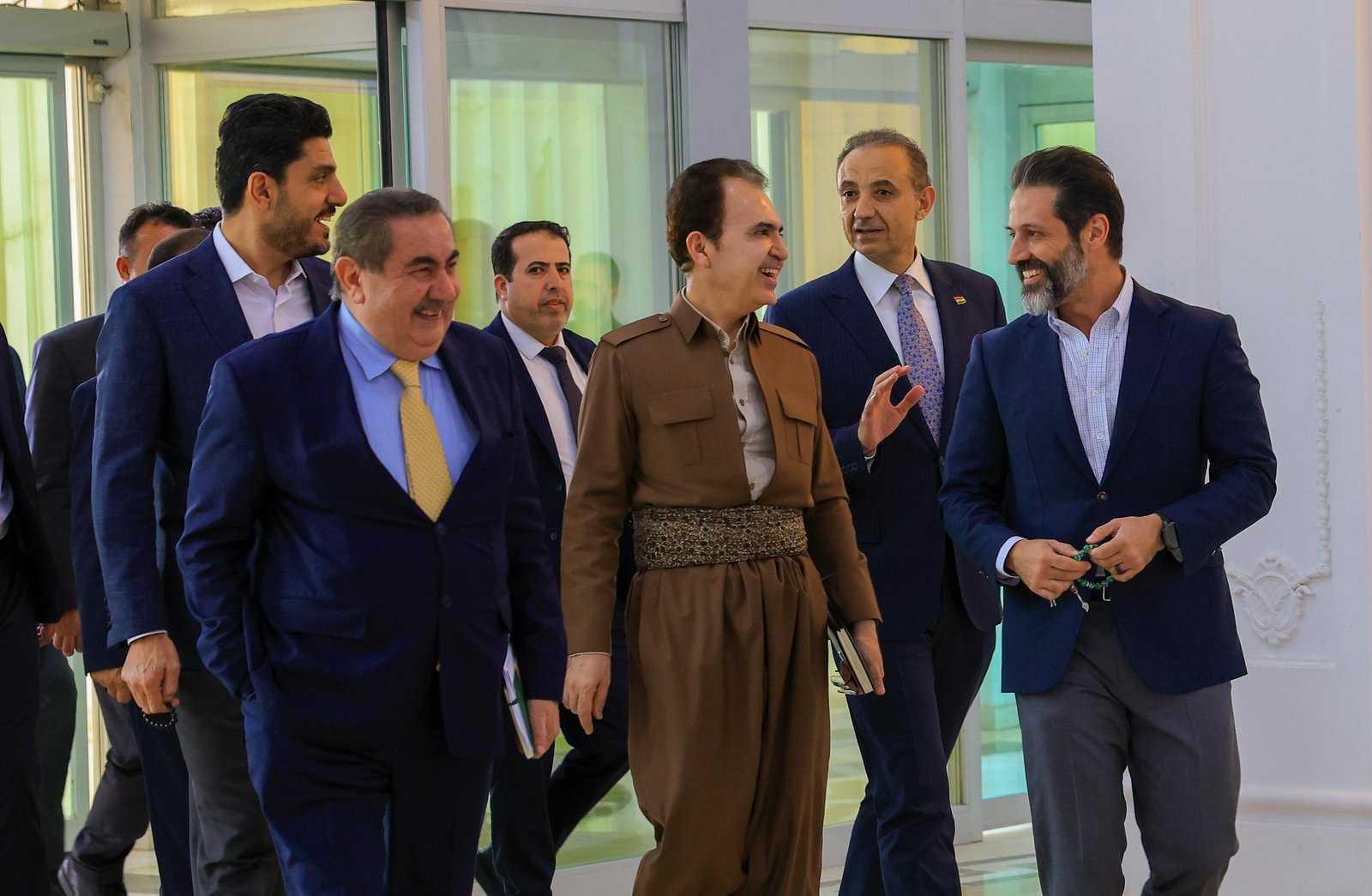Ten Months On, KRG Cabinet Talks Deadlocked as ‘September Parliament Session’ Floated Under Western Pressure

The Kurdistan Democratic Party (KDP) and the Patriotic Union of Kurdistan (PUK) politburos met yesterday in Erbil to discuss the stalled formation of the Kurdistan Regional Government (KRG) cabinet and the possible reconvening of the Kurdistan Parliament, which has convened only once briefly since October 2024 elections. The idea of holding a parliamentary session in September was raised in the meeting, but no date has been set, and the talk may be aimed more at easing US and Western pressure than reflecting a concrete plan.
Context: Despite ten months passing since the regional elections, the KDP and PUK remain deadlocked over the division of ministerial and senior posts, with no positions yet allocated between them. Their only mutual commitment thus far has been to “intensify efforts” toward a potential September parliament meeting. Even if such a session were held, it would legally constitute a continuation of the still-open January sitting, requiring the election of the parliamentary speakership before any legislative work could proceed.
Analysis: Yesterday’s meeting, held at the PUK Political Bureau headquarters, ended with a joint statement stressing the need for “serious and intensified efforts” to reconvene parliament and advance cabinet formation. However, the statement stopped short of confirming that parliament would actually meet in September. This reinforces the view among some observers that the “September” reference is more a diplomatic signal to appease Western partners, particularly the US, which has been pressing for parliament’s reactivation, than an indication of imminent progress.
US and European envoys have repeatedly urged both parties to complete the cabinet before Iraq’s parliamentary elections, warning that further delays will undermine governance and weaken the region’s political standing.
Negotiations between the KDP and PUK remain focused on dividing top political and ministerial posts, with each side advancing distinct allocation plans. The KDP has outlined positions it seeks to retain, those it would offer to the PUK, and acknowledged the PUK’s own demands. The gap between these positions remains substantial, with little indication of compromise.
Kurdistan Cabinet Formation Standoff
Position demands 10 months after elections
KDP proposals for its own share:
- President of the Kurdistan Region
- Prime Minister of the Kurdistan Region
- President of the Kurdistan Judicial Council
- Deputy Speaker of the Kurdistan Parliament
- Minister of Interior
- Minister of Natural Resources
- Minister of Electricity
- Minister of Education
- Minister of Municipalities
- Head of the Council of Ministers’ Office
KDP proposals for the PUK:
- Speaker of the Kurdistan Parliament
- Deputy President of the Kurdistan Region
- Deputy Prime Minister of the Kurdistan Region
- Minister of Finance
- Minister of Higher Education
- Minister of Planning
- Minister of Labor and Social Affairs
- Minister of Reconstruction and Housing
- Minister of Agriculture
- Minister of Trade
- Minister of Peshmerga
PUK demands:
- President of the Kurdistan Region
- Or a two-year rotation of the premiership (two years each)
- Minister of Interior
- Minister of Natural Resources
- Minister of Agriculture
- Minister of Finance
- Minister of Higher Education
- Minister of Agriculture (listed twice in their demands)
- Minister of Planning
- Secretary of the Council of Ministers
The two sides remain far apart. Each has rejected several of the other’s proposals, and new demands continue to be put forward.
Under Law No. 1 of 2019 on the Presidency of the Kurdistan Region, parliament must begin the process of electing the president within 30 days of electing its own leadership. The election and swearing-in of the president can take up to 30 days, after which the president nominates a prime minister who must form a cabinet within another 30 days, as stipulated in Law No. 1 of 2005 on the Presidency of the Kurdistan Region.
This means the full process — from electing the parliamentary leadership to swearing in the cabinet — takes roughly 60 days. Even if an agreement were reached in mid-September, the new cabinet would likely only be in place by mid-November, about a week after Iraq’s parliamentary elections. And that is assuming there are no further disputes or delays.









